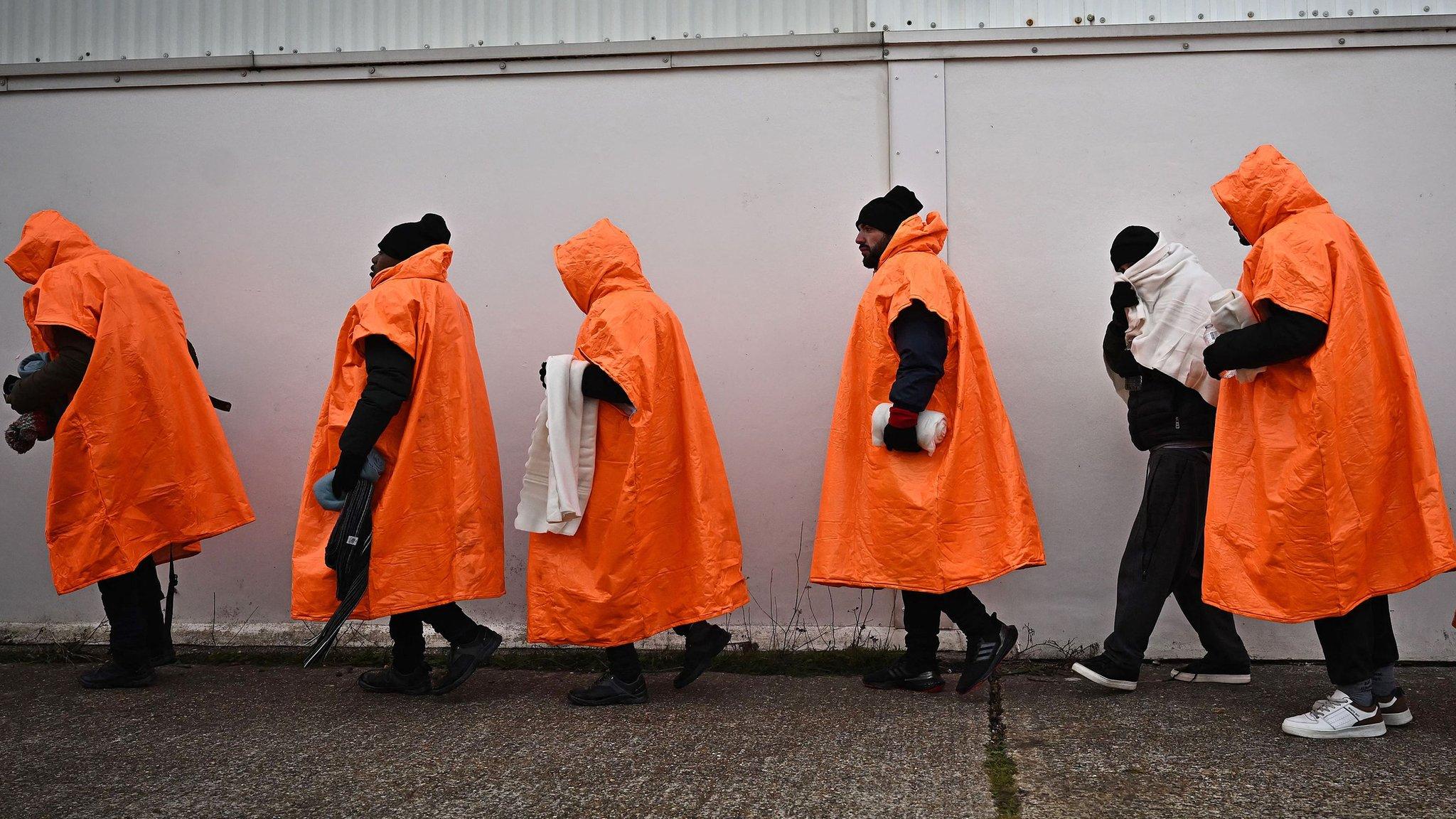Channel crossings: RNLI chief hits out over migrant rescue abuse
- Published
This dinghy was full of people including young children
The head of the RNLI has defended lifeboat crews who help rescue migrants at sea, after it emerged some were being heckled by the public.
The charity's chief executive Mark Dowie spoke out as record numbers of migrants cross the English Channel.
He said he recognised the migrant crisis was a "polarising issue", but lifeboat crews carry out "humanitarian work of the highest order".
The Home Office said the RNLI carried out "vital work" protecting lives.
Rescue teams which are called into the Channel from Kent and Sussex have told the BBC they are faced with desperate situations, including "terrified" and suffering children.
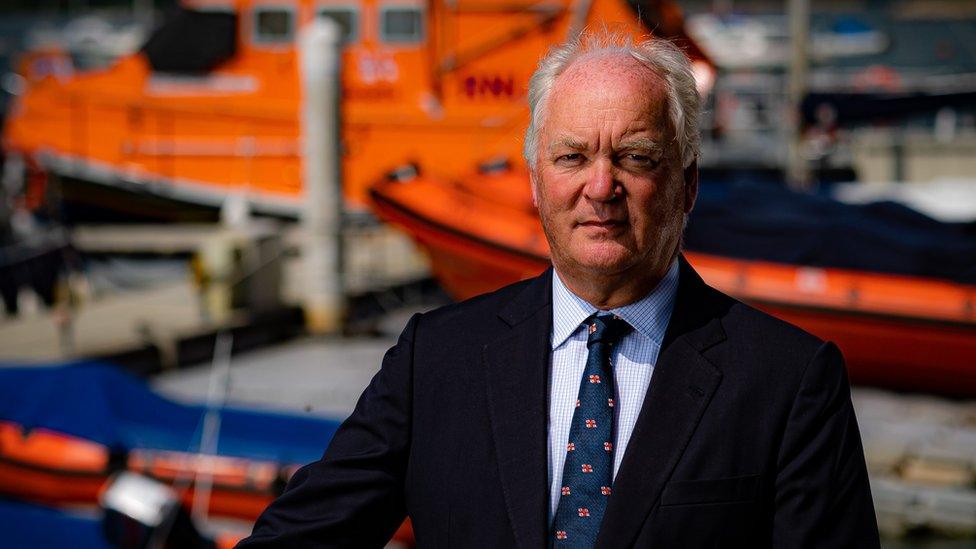
Royal National Lifeboat Institution (RNLI) chief executive Mark Dowie at the RNLI College in Poole, Dorset.
Mr Dowie said: "All decent people will see this as humanitarian work of the highest order.
"Our crews should not have to put up with some of the abuse they received."
A London RNLI crew hit out on social media, external at the weekend after volunteers were verbally assaulted.
Another volunteer, who did not wish to be named, said on one occasion when bringing rescued migrants ashore his team were confronted with an "angry mob" who shouted "go back to France".
"It's one of the most upsetting things I've ever seen," the crew member said.
"I can't imagine what those families felt like, coming ashore to that after the night they'd had."
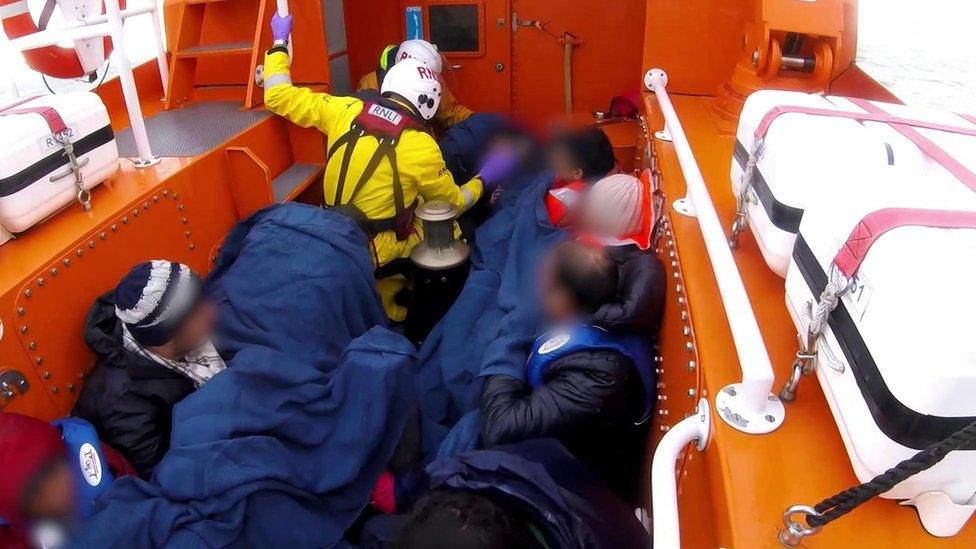
A dinghy full of migrants being rescued by the RNLI in the English Channel
Another lifeboat volunteer said beachgoers once hurled abuse at a group of rescued migrant women and children, and "some drunken yob threw a beer can at them".
Mr Dowie said RNLI volunteers simply wanted to prevent people dying at sea.
He said: "Our volunteers get out of bed in the middle of the night, leave their employment, leave their families, and go out and do this because they believe in doing the right thing."
He said it was a "very frightening environment".
The migrants' dinghies are often overloaded and inadequate for such a "perilous" journey, and people suffer exposure, dehydration, sunstroke and sea sickness, he added.
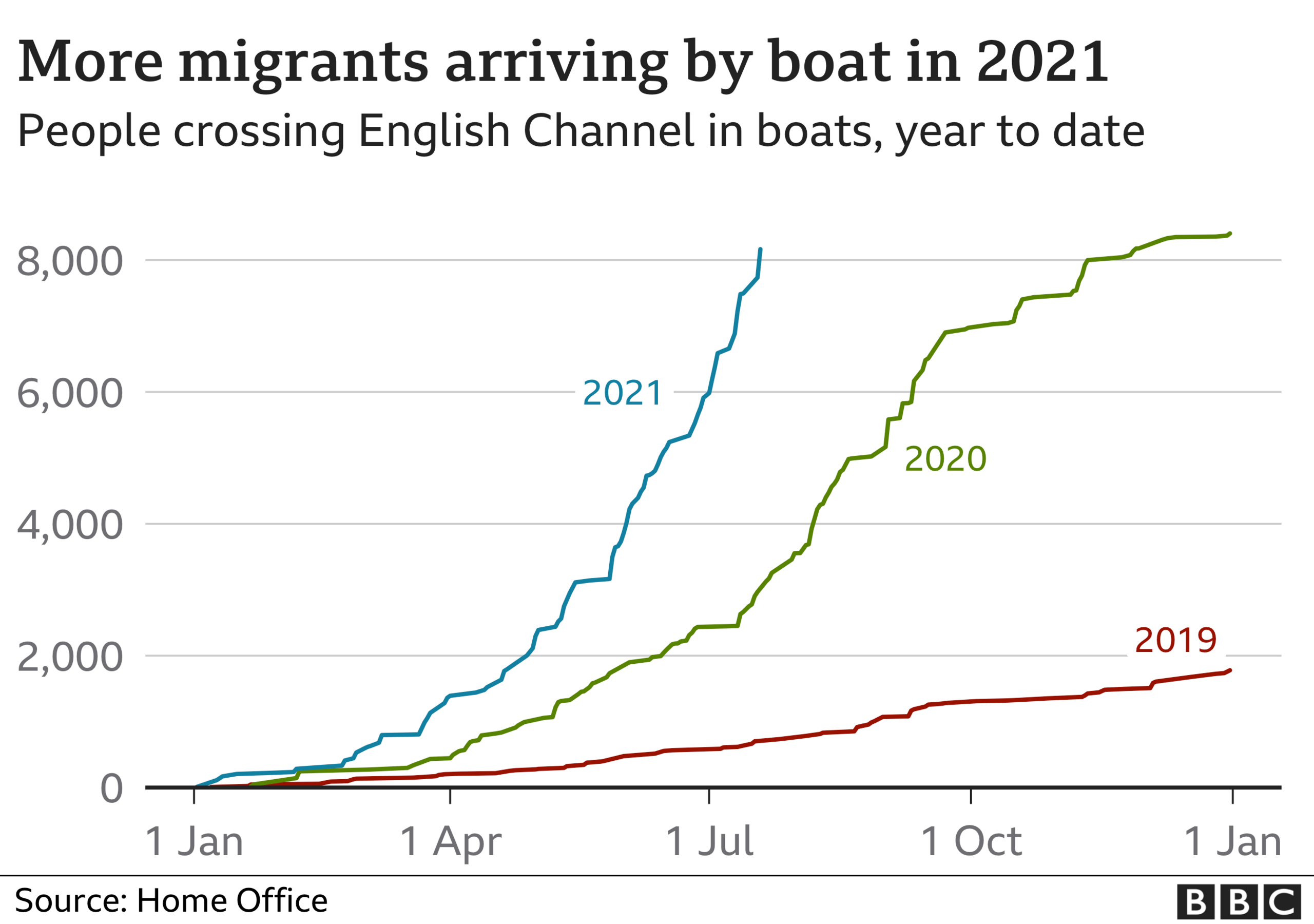
More than 9,000 people have crossed the Channel so far this year on board small boats, including more than 3,300 in July alone.
Another crew member said: "The children are normally terrified, screaming and crying. We need to help. No-one deserves to drown because of where they come from."
Dan O'Mahoney, clandestine channel threat commander, said: "We are proud to work alongside RNLI crews in their vital work to protect lives at sea.
"This unacceptable rise in dangerous small boat crossings is fuelled by serious organised criminals who profit from human misery and put lives at risk."

Follow BBC South East on Facebook, external, on Twitter, external, and on Instagram, external. Send your story ideas to southeasttoday@bbc.co.uk.
Related topics
- Published26 July 2021
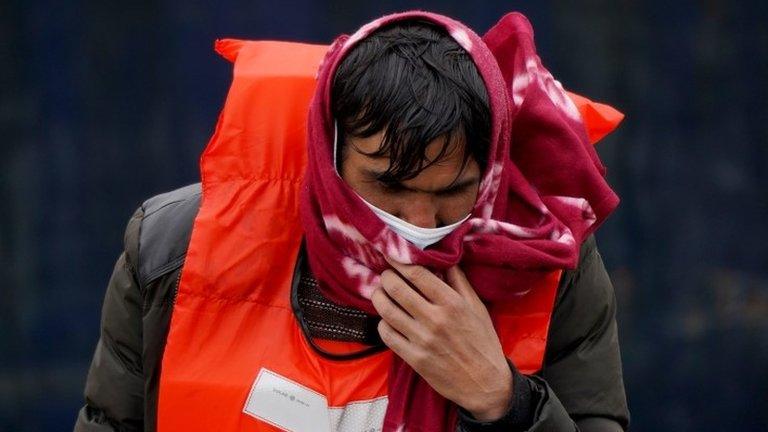
- Published20 July 2021
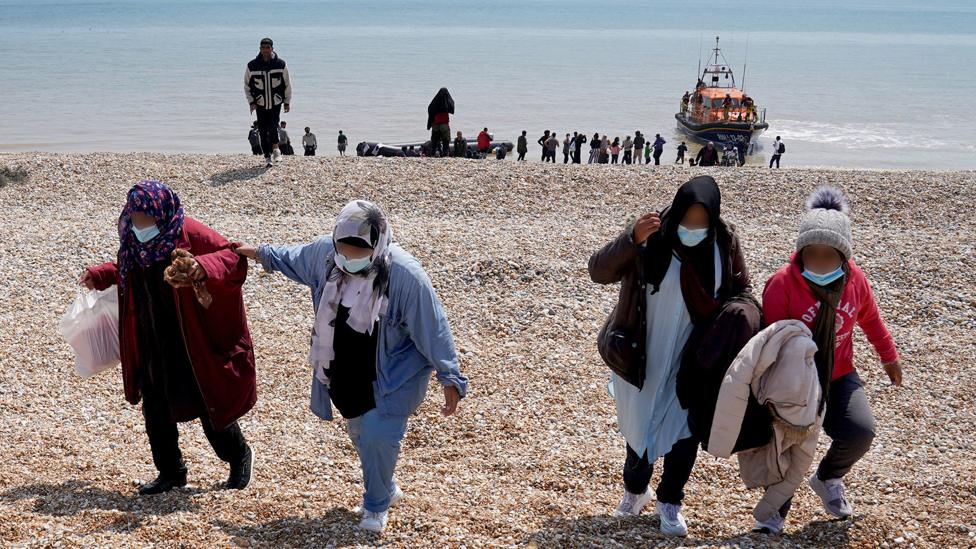
- Published19 July 2021
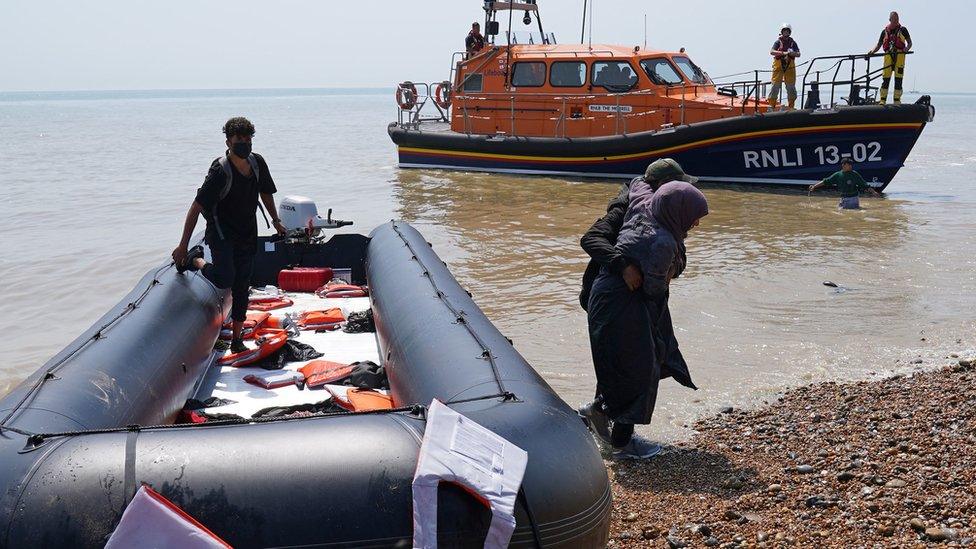
- Published29 June 2021
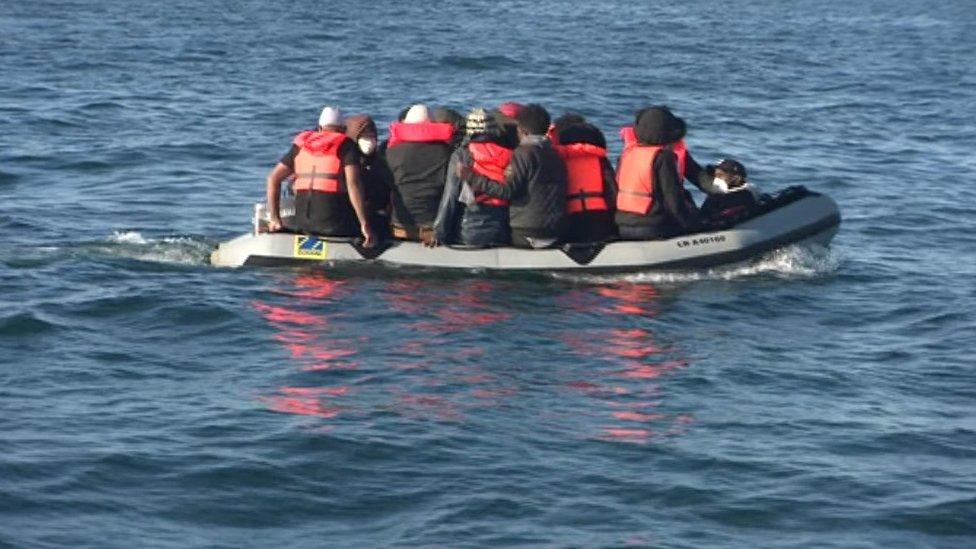
- Published6 July 2021
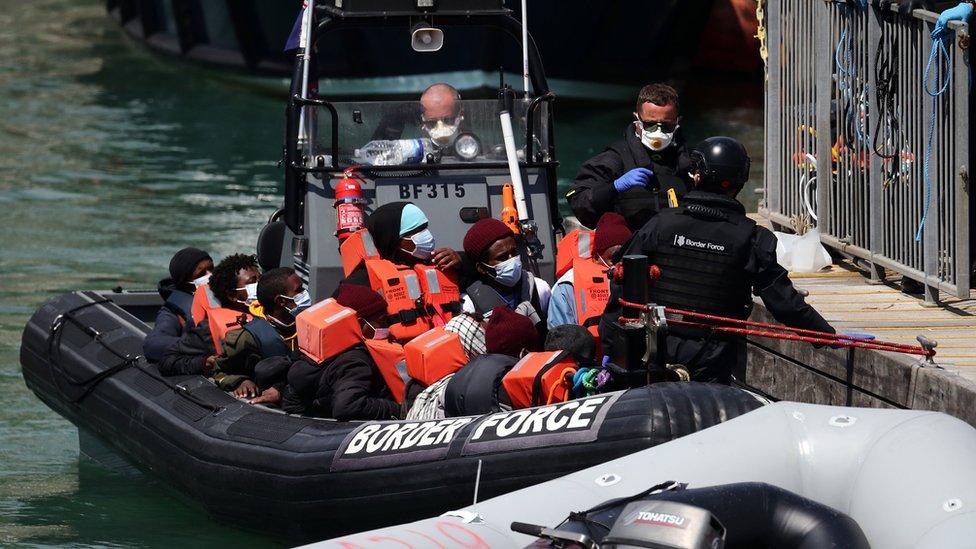
- Published13 December 2023
